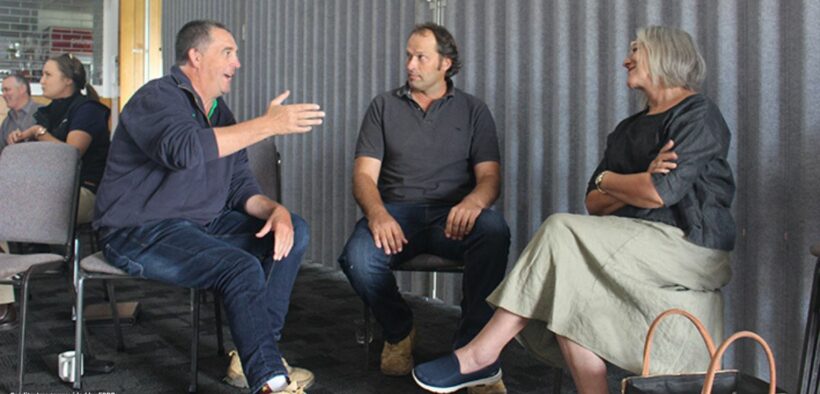More funding is now on offer to support mental health projects in remote, rural and regional communities, thanks to new supporters of FRRR’s In a Good Place (IAGP) grants program, with grants of up to $20,000 now available.
First established in 2018 with the support of CCI Giving, the program’s focus has been on supporting community-driven initiatives that reduce social isolation, increase social participation and connectedness, and increase help-seeking for people within rural, regional and remote communities who are at risk of, or are experiencing, mental health issues.
Now the IAGP program is expanding, adding a stream focussed on farmers and farming communities, following the recent National Farmer Wellbeing Report, which was presented at a recent mental health and wellbeing forum, hosted by the National Farmers Federation (NFF).
The report revealed that in recent years, 45% of Australian farmers have felt depressed, with 64% experiencing anxiety. The causes of this are many-fold, but the top among them were weather or natural disasters (47%), financial stress (36%) and inflation and cost pressures (35%). Add to this that 76% of Australian farmers believe that the role they play is undervalued by the Australian public and it’s not hard to understand why farmers and farming communities are experiencing declining mental health.
The Report called for additional funding and support, which prompted six new partners to join FRRR’s IAGP program, alongside CCI Giving – Macdoch Foundation, Jibb Foundation, Morris Family Foundation, Norman Family Foundation and Rebecca Gorman & John Sevior.
These funders have committed to the program for three years, ensuring dedicated funding for farmers and farming communities from 2024-2026. In total, $1,183,000 has been committed over the next three years
FRRR’s CEO, Natalie Egleton, said that the insights shared by farmers and farmer advocates reaffirm the relevance of the In a Good Place program and the role it can play in supporting the well-being of farming communities.
“These firsthand experiences and insights, highlight the need for investment in projects that promote preventative and responsive mental health approaches in farming and agriculture-dependent communities.”
“Critically, the additional funding will help to address gaps in services by upskilling people locally and bringing in experts, so that locals in farming communities can better support one another.
Egleton expressed her gratitude towards the generous support of our new partners and CCI Giving.
“We can build on from the valuable impact that the IAGP program has had on rural Australia over the last six years, by ensuring farming communities can access more funding to develop the community-led, place-based solutions that make sense, locally.”
Jeremy Yipp, Chair of CCI Giving, is also pleased to see the expansion of the program and highlighted that the events of recent years have added complexity to the challenges that remote, rural and regional communities face.
“We’ve seen first-hand that by supporting projects that remove barriers to people getting appropriate support, we can make a lasting difference.”
“So it’s wonderful to have more organisations coming on board, enabling FRRR to support even more non-clinical approaches that are community-based and accessible at a grassroots level. It will mean that even more communities can access support,” added Yipp.
Michelle Gortan, CEO of Macdoch Foundation, one of the new partners, said that due to increasingly variable weather conditions, financial and market pressures, and the need to navigate industry and land use transitions, there is a need to ensure farming communities are feeling well-supported
“Maintaining good mental health and community wellbeing is multi-faceted and a lifelong process that requires a range of different approaches.”
“We recognise that local communities know what will work in their particular context, and as a collective of funders, we are delighted to be partnering with FRRR so that agricultural communities can design and implement community-led solutions that are fit for purpose.”
Gortan highlighted that FRRR’s special tax status means that as partners, they can respond practically to the issues raised in the National Farmer Wellbeing Report and ensure funding reaches grassroots communities to support improved community wellbeing and mental health, which ultimately helps to create a stronger Australia.
The expanded program supports a range of approaches that are preventative or responsive in nature, reduce social isolation by increasing social participation and connectedness, and reduce stigma surrounding mental health by encouraging open discussion and supporting self-help-seeking. Communities of less than 10,000 will receive priority.
Grants of up to $20,000 are available from a funding pool of at least $290,000. Grants are available via two streams:
- Community wellbeing – focussing on mental health and wellbeing within remote, rural and regional communities;
- Farmers and farming communities – supporting the mental health and well-being of farmers and the communities they live in.
Applications are via an expression of interest process, with EOIs due 30 April, with final applications for those shortlisted due 15 May.
Menchie Khairuddin is a writer Deputy Content Manager at Akolade and content producer for Third Sector News. She is passionate about social affairs specifically in mixed, multicultural heritage and not-for-profit organisations.


































































































































































